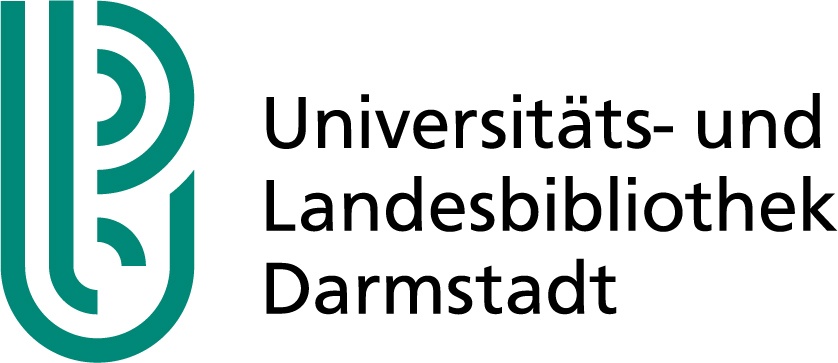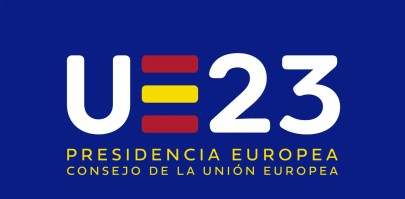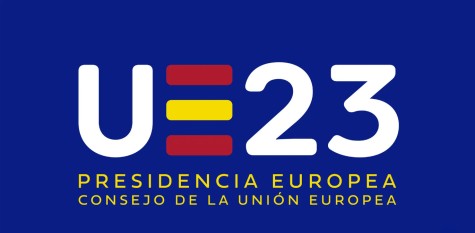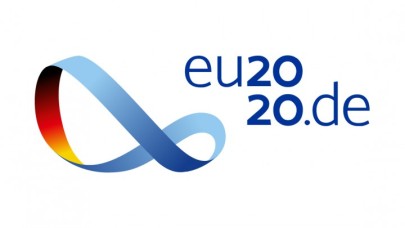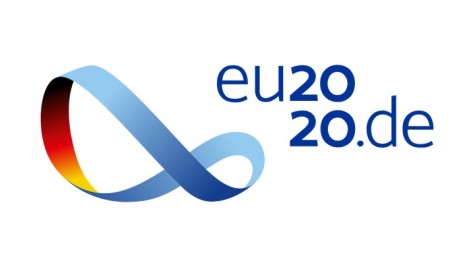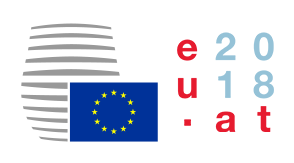The Danish presidency of the Council of the European Union
1 July – 31 December 2025
Denmark is holding the rotating presidency of the Council for the eighth time, this time as part of a presidency trio with Poland and Cyprus. These three countries set long-term goals and create their common programme, that defines the most important topics to be addressed by the Council.
Under the slogan ‘A strong Europe in a changing world’, the Danish presidency wants to work for a secure Europe as well as a competitive and green Europe.
Danish presidency’s website
Danish presidency’s priorities
Danish presidency’s programme
Would you like to find out more about the topics that will be discussed during the Danish Presidency of the Council of the EU in the coming months?
A guide to relevant resources has been compiled by the EU Council Library, which includes the following media:
• Books
• Articles
• Databases
• Media
• EU Publications
The Polish presidency of the Council of the European Union
1 January – 30 June 2025
Poland has assume the rotating presidency of the Council of the EU for the second time. Under the slogan “Security, Europe!”, the presidency aims to support the strengthening of European security in all its dimensions.
Together with Denmark (2/2025) and Cyprus (1/2026), Poland forms the so-called trio of presidencies. These three countries set long-term goals and create their common programme, that defines the most important topics to be addressed by the Council.
The focus of the Polish Presidency is on strengthening seven dimensions of European security:
- Defense and security
- Protection of people and borders
- Resistance to foreign interference and disinformation
- Ensuring the security and freedom of business
- Energy transition
- Competitive and resilient agriculture
- Health security
The Hungarian presidency of the Council of the European Union
1 July – 31 December 2024
Hungary had taken over the rotating presidency of the Council of the European Union for the second time. The term of office was six months.
One of the tasks of the EU Council presidency is to mediate in the event of differences of opinion between EU member states.
Under the motto ‘Make Europe Great Again’, the Hungarian presidency’s programme was structured around seven priorities:
1) New European Competitiveness Deal
The Hungarian presidency wants to focus on improving European competitiveness and integrate this goal into all policy areas. With a “new European competitiveness deal”, the aim is to improve economic productivity, boost growth and deepen the ecological and digital transformation.
2) The Reinforcement of European Defense Policy
The Hungarian presidency intends to place particular emphasis on improving European defense and response capabilities and ensuring Europe's own security. This includes strengthening the technological and industrial basis of European defense and improving cooperation in the procurement of defense equipment between Member States.
3) A Consistend and Merit-Based Enlargement policy
In particular, expanding and deepening cooperation with the Western Balkans. Consultations are planned both in the framework of the EU-Western Balkans Summit and in the framework of the European Political Community.
4) Stemming Illegal Migration
In order to find appropriate solutions, closer cooperation with the countries bordering the EU and with the main countries of origin and transit is seen as essential. Particular attention should be paid to the external dimension of migration, “including efficient cooperation with relevant third countries, more effective returns and innovative solutions rules on asylum.”
5) Shaping the Future of Cohesion Policy
The Hungarian presidency seeks a strategic debate on the future of cohesion policy in order to reduce regional disparities and ensure economic, social and territorial cohesion. This involves promoting competitiveness and employment as well as adressing demographic challenges
6) A Farmer-Centered EU Agricultural Policy
The Hungarian Council presidency considers the livelihood of European farmers to be under threat. They want to promote sustainable agriculture, stabilize agricultural markets and work towards a decent standard of living for farmers.
7) Addressing Demographic Challenges
The ageing of society, the green and digital transition, the rural exodus, increasing pressure on tax revenues and the changing world of work present demographic issues and challenges. These are the issues that the Hungarian presidency would like to focus on.
To help readers navigate the complexities of the priorities of the Hungarian presidency, the Council Library has compiled a library guide of relevant and authoritative resources.
Browsing through the tabs you will find books, articles, databases, websites, videos and EU publications. This is a non-exhaustive list that can be used to help broaden your understanding of the topics that were discussed during the months of Hungary's presidency of the Council.
Library Guide on the Hungarian Presidency of the Council of the EU
Further information:
Hungarian presidency's website
Hungarian presidency's priorities
Hungarian presidency’sprogramme
Belgian presidency of the Council of the European Union
1 January – 30 June 2024.
Belgium held the Presidency of the Council of the EU in the first half of 2024.
The Belgian Presidency focussed on six thematic areas:
- Defending the rule of law, democracy and unity.
- Strengthening competitiveness.
- A green and just energy and climate transition.
- Reinforcing the social and health agenda.
- Protecting people and borders.
- Promoting a global Europe.
Belgium took over the rotating presidency of the EU Council for the thirteenth time and continued the work of the previous presidency (Spain).
Belgian presidency's website
Belgian presidency's priorities
Belgian presidency’s programme
Spanish Presidency of the Council of the European Union
1 July – 31 December 2023.
During the second half of 2023, Spain held the presidency of the Council of the EU.
Spain had set four priorities for its work during its presidency of the Council:
- Reindustrialise the EU and ensure its open strategic autonomy
- Advance in the green transition and the environmental adaption
- Promote social and economic justice
- Strengthen European unity
Swedish Presidency of the Council of the European Union
1 January – 30 June 2023.
During the first half of 2023, Sweden held the presidency of the Council of the EU. Sweden had identified four priorities for the work under its third presidency of the Council:
- Security and unity.
- Competitiveness.
- Green and energy transition.
- Democratic values and the rule of law.
Czech presidency of the Council of the EU:
1 July – 31 December 2022
During its second presidency of the Council of the EU, the Czech Republic focused on five closely linked priority areas:
- managing the „refugee crisis“ and Ukraine’s post-war recovery
- energy security
- strengthening Europe’s defence capabilities and cyberspace security
- strategic resilience of the European economy
- resilience of democratic institutions
French presidency of the Council of the EU: 1 January – 30 June 2022
The priorities of France's presidency were reflected in its motto 'Recovery, strength and a sense of belonging':
- recovery, to enable Europe to support the ecological and digital transitions
- strength, to defend and promote european values and interests
- a sense of belonging, to build and develop a shared European vision through culture, european values and common history
Portugal's presidency of the Council of the European Union
From 01 January to 30 June 2021.
German's presidency of the Council of the European Union
from 1 July to 31 December 2020.
The priorities of Germany's presidency were driven by its motto: “Together for Europe’s recovery”.
The presidency programme focused on six main areas:
– overcoming the consequences of the coronavirus crisis for the long-term as well as economic and social recovery
– a stronger and more innovative Europe
– a fair Europe
– a sustainable Europe
– a Europe of security and common values
– a strong Europe in the world
The German presidency of the Council of the EU focused directly on overcoming the COVID-19 pandemic. Fighting the spread of the virus, supporting the European economy to recover and reinforcing social cohesion in Europe. In order to achieve this, Germany was committed to joint approved action, European solidarity and common values.
Croatia's presidency of the Council of the European Union
from 1 January to 30 June 2020.
The priorities of Croatia's presidency were driven by its motto: “A strong Europe in a world of challenges”.
The presidency programme focused on four main areas:
- a Europe that develops
- a Europe that connects
- a Europe that protects
- an influential Europe.
This was Croatia's first presidency of the Council since it joined the EU in 2013.
Croatian presidency website
Romanian presidency of the Council of the European Union
from 1 January to 30 June 2019.
The priorities of the Romanian Presidency were driven by this motto: cohesion, a common European value, understood as unity, equal treatment and convergence.
The presidency programme focused on four main priorities: Europe of convergence, a safer Europe, Europe as a strong global actor and Europe of common values.
It was the first time that Romania held the Council rotating presidency.
The Romanian Presidency website
Austrian presidency of the Council of the European Union
from 1 July to 31 December 2018.
The presidency programme placed a focus on asylum and migration issues, on protecting external borders, on fighting radicalisation, terrorism and organised crime, on digital security, and on protecting European values.
The Austrian Presidency Website
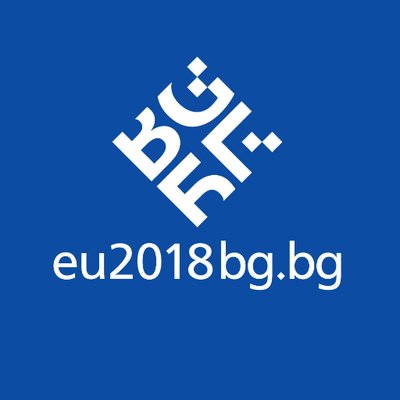
Bulgaria held the EU Council Presidency
from January to July 2018.
This was Bulgaria's first time to hold the rotating presidency. The Bulgarian government identified four over-arching priorities for its presidency:
- The future of Europe and young people
- Western Balkans
- Security and stability
- Digital economy
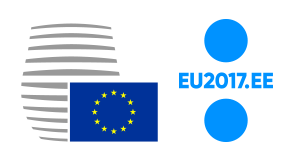
The Estonian presidency of the Council of the EU: 1 July to 31 December 2017
The priorities of the Estonian presidency built on the European Council's strategic agenda and common goals formulated by the member states and the EU institutions in the Rome declaration on the occasion of the 60th anniversary of the Rome Treaties. The Estonian presidency focused on preserving the common values of prosperity, security, peace and stability in Europe. It sought to maintain Europe's unity through practical decisions.
During the next 6 months, the presidency focused on four key areas: an open and innovative European economy, a safe and secure Europe, digital Europe and free movement of data as well as an inclusive and sustainable Europe.
The Netherlands EU Presidency 2016
From 1 January to 30 June 2016. The Netherlands Presidency work programme focused on four key areas: migration and international security, sound finances and a robust eurozone, Europe as an innovator and job creator and forward-looking climate and energy policy.

Luxembourg Presidency of the Council of the European Union
For the twelfth time since 1958, Luxembourg held the Presidency of the Council from 1 July to 31 December 2015.
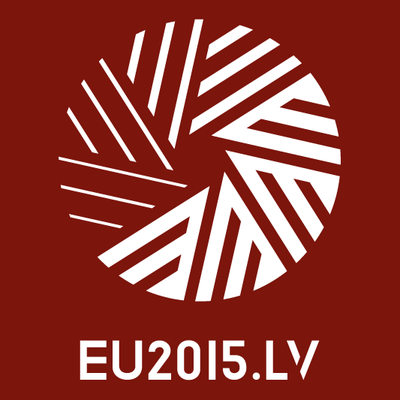
Latvian Presidency of the Council of the European Union
From 1 January to 30 June 2015.
The Latvian Presidency focused on three overarching priorities: Competitive Europe, Digital Europe and Engaged Europe.
Italian Presidency of the Council of the European Union
From 1 July to 31 December 2014.
Priorities of the Italian Presidency: Growth and employment, a space for freedom and security, full exercise of citizenship rights and a stronger role of Europe in the world.


